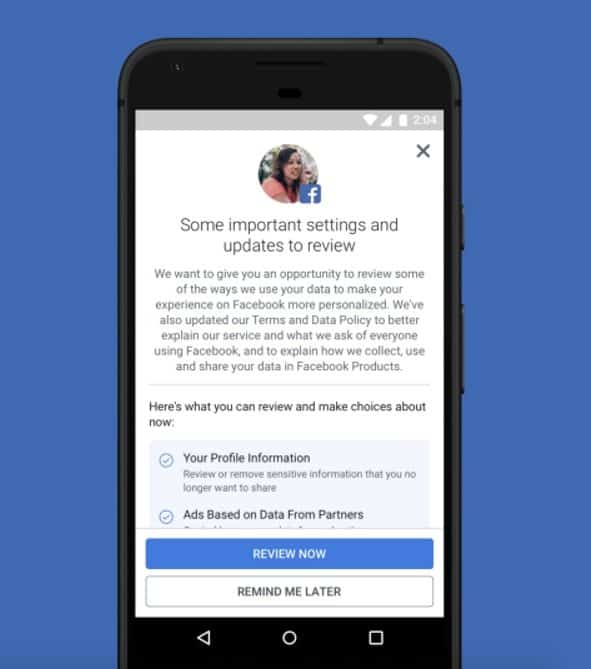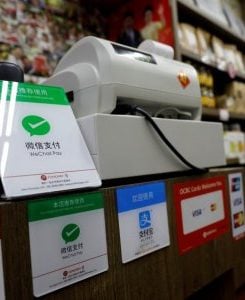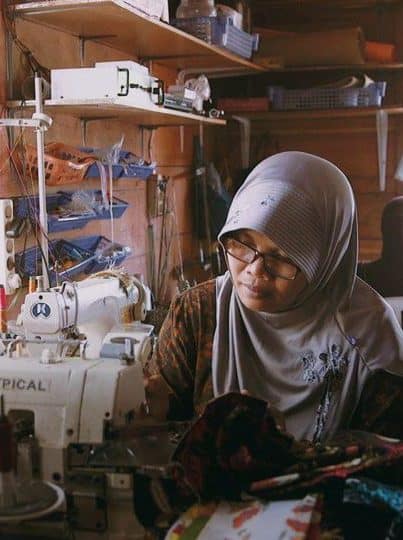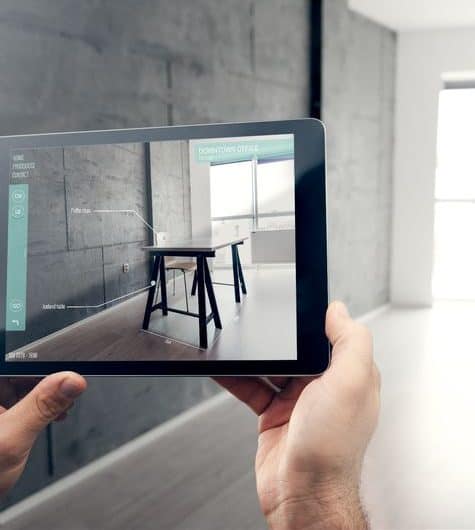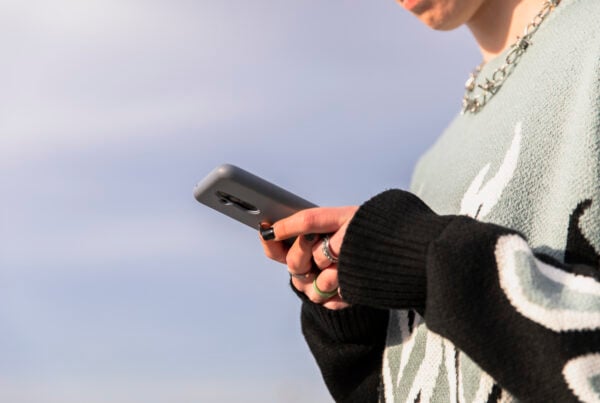Find out the week’s top mobile stories from around the world.
This week.. How GDPR will impact the mobile industry, Snapchat launches incubator program for mobile, how augmented reality is poised to morph into the mainstream, banking by mobile app ‘to overtake online by 2019’ and much more.

How will GDPR impact the mobile industry?
Tech Radar
The EU’s General Data Protection Regulations (GDPR) are the biggest shakeup in privacy legislation for more than a generation. It comes into effect this Friday, as the two year grace period for any organisation that handles the data of EU citizens – even if they’re not in the EU – expires.
The major impact of GDPR is twofold. Firstly, it places increased obligations on businesses in terms of how they use and protect personal information and secondly, it gives citizens greater control over how organisations use and collect it.
Businesses must take all reasonable steps to ensure that data is protected and disclose any breach responsibly and rapidly. They must also gain explicit consent for this data to be used and only use it for the specific purpose for which it has been collected.
Read more…
Facebook pushes its GDPR efforts beyond Europe
Mobile Marketing Magazine
In the spirit of tomorrow’s implementation of the general data protection regulation (GDPR), Facebook is asking all its users – not just those within the EU – to review their privacy settings.
Over the next few weeks, Facebook users all over the world will be prompted with an alert as they open the social network up to the news feed. This alert will enable them to review details about advertising, face recognition, and the information they’ve chosen to share on their profiles – much in the same way to the alerts that have been popping up for EU citizens over the past month or so.
The customised message will show each individual user how Facebook uses data from partners to show more relevant advertising; the political, religious, and relationship information they have included in their profiles; how Facebook uses face recognition; and updates to Facebook’s terms of service and data policy.
Read more…
Snapchat’s Parent Launches ‘Yellow’ Incubator Program for Mobile-Content Creators
Variety
Snap, the parent company of Snapchat, is looking to invest in new media content creators through Yellow — a new program to fund startup teams and mentor them in the art of mobile storytelling.
Snap says it will invest $150,000 in each team that is accepted into the Yellow program, which will include a three-month residency at the company’s space in Venice, Calif. The participants also will have the opportunity to get their content distributed on the Snapchat platform.
The first Yellow program, which kicks off in September, will include up to 10 projects. Project teams will likely consist of one to four people, according to Snap. Candidates can apply for the program at the Yellow website: yellowla.com. The application window will close July 8, 2018, and the first class will begin on Sept. 10 and run through Dec. 7, 2018.
Read more…
Starbucks app beating off mobile payments competitors
Finextra
Starbucks will remain the most popular proximity mobile payment app, staying ahead of Apple Pay and other competitors, according to eMarketer’s latest forecast on US proximity mobile payments.
This year, 23.4 million people ages 14 and over will use the Starbucks app to make a point-of-sale purchase at least once every six months. That puts it slightly ahead of the 22.0 million people who will use Apple Pay. Google Pay (11.1 million users) and Samsung Pay (9.9 million) will round out the top four payment apps. The ranking will remain unchanged through 2022.
“The Starbucks app is one of the bigger success stories in mobile proximity payments,” said eMarketer forecasting analyst Cindy Liu. “It has gained traction thanks to its ability to tie payments to its loyalty rewards program. For users of the app, the value of paying with their smartphone is clear and simple—you can save time and money at the register, all while racking up rewards and special offers.”
Read more…
Mobile payment firms struggle to dethrone cash in Southeast Asia
Business Insider
Bui Mai Phuong is an avid online shopper, ordering anything from clothing to personal-care products from her smartphone. But she prefers to pay with cash.
She is among hundreds of millions of people whom firms such as Softbank Group-backed Grab and China’s Tencent want to win over as they try to tap into Southeast Asia’s burgeoning internet sector.
More than 70 percent of the region’s 600 million-plus people do not use banks – higher than the global average of about 30 percent – and e-commerce is projected to hit $88 billion by 2025.
But convincing consumers like Phuong, who lives in Hanoi, could be tricky.
Read more…
There Are 1 Billion Unbanked Women In The World. This Mobile Initiative Could Transform Their Lives
Forbes
Rose Kibona sells prepared food and drinks to passers-by from a small stall at the bustling local market in her hometown of Mbeya, Tanzania. At the end of each work day, she put her earnings into various savings accounts — which, in her case, were jars, bags and a locked chest hidden away in her bedroom — each one for a different purpose.
“This is how she saved,” says Mayra Buvinic, a senior fellow at the Center for Global Development (CGD) and researcher for She Counts.
She Counts is an international effort launched this March to support unbanked women micro-entrepreneurs like Kibona by giving them mobile savings accounts. It’s a collaboration between the CGD, Women’s World Banking (WWB) and the ExxonMobil Foundation to reach more than 1 billion women worldwide who lack easy access to banking services.
Read more…
How augmented reality is poised to morph into the mainstream
Insider
Ambitious companies are being urged to look through the commercial lens of new technologies headed up by augmented reality (AR).
AR brings together components of the digital world with an individual’s perception of reality, cleverly overlaying the former with the latter to appear natural.
Now the novel tech is about to morph into the mainstream. Some analysts think it could even generate as seismic an impact as the desktop PC or smartphone. Michael Romilly, chief executive of Dundee’s Mozenix predicts AR will be worth £45bn globally by 2021, claiming: “We’ve reached a tipping point.”
He claims: “This is especially the case now Apple and Google are making AR increasingly available on existing smartphones and other mobile devices.”
Read more…
Banking by mobile app ‘to overtake online by 2019’
BBC
More consumers will use apps on their smartphone than a computer to do their banking by as early as next year, according to forecasts.
Last year, 22 million people managed their current account on their phone, industry analyst CACI said.
It has predicted that 35 million people – or 72% of the UK adult population – will bank via a phone app by 2023.
By then, customers would typically visit a branch only twice a year, it said.
CACI added that rural areas and smaller coastal towns would see the biggest increase in mobile users between now and 2023, owing in part to frustration over broadband access pushing customers towards mobile networks.
Read more…
Devices: Apple leads in wearables, Google in smart speakers
Internet of Business
Apple and Google have reported positive Q1 sales figures for wearables and smart speakers, respectively.
The news is particularly good for Google: sales of the company’s Google Home and Home Mini devices have overtaken Amazon’s Alexa-powered range for the first time – according to market analysis firm, Canalys.
The analysts have also published a report on global wearable sales. The data reveals that the Apple Watch outsold its rivals in Q1 and has an 18 percent share of the global market.
Both the smart speaker and wearables markets have seen healthy growth compared to the same period in 2017, according to the latest figures.
Read more…
Two-thirds of marketers move all or some of their programmatic buying in-house
Mobile Marketing Magazine
A growing number of brand marketers are moving the programmatic purchase of ads in-house, with 65 per cent having either already move all programmatic buying in-house or begun the process to do so.
According to a survey of 119 US-based brand executives from the Interactive Advertising Bureau (IAB) and its Data Centre of Excellence, 18 per cent of programmatic buyers have already moved all programmatic in-house. Meanwhile, a further 47 per cent have begun the move and plan to continue further into the process.
Of the remaining respondents, 13 per cent have previously trialled in-house programmatic but decided not to move forward with it, and 22 per cent of brands currently have no intention of moving in-house.


